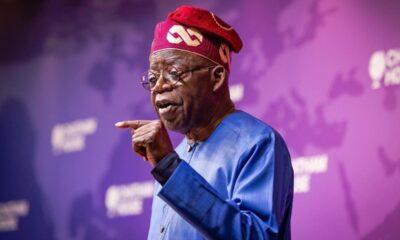The organised labour at the weekend cautioned the National Economic Council (NEC) against approving a recommendation by the Nigerian Governors’ Forum (NGF) seeking a N385 pump price for petrol.
State affiliates of the organised labour, in separate interviews with the media (THISDAY), said doing so will unleash hardships on the people and heat up the polity.
Their warning came ahead of a National Executive Committee (NEC) meeting of the Nigeria Labour Congress (NLC), scheduled for Abuja tomorrow, to deliberate on the issue.
The 36 governors, under the auspices of the NGF, at a meeting last week, had endorsed the N385 per litre pump price recommended by a committee set up by NEC, and headed by the Governor of Kaduna State, Mallam Nasir el-Rufai.
However, the recommendation is subject to approval by NEC, chaired by Vice President Yemi Osinbajo.
Although the Minister of State for Petroleum Resources, Mr. Timipre Sylva, had at the weekend allayed fears of an increase in petrol price, the various states’ chapters of the labour unions vowed to resist the proposed price regime, if approved.
Reacting to the governors’ proposal, the Chairman of the Niger State chapter of the NLC, Mr. Yakubu Garba, told the media at the weekend that there would be a “great revolt across the country if the pump price of petrol is increased to N385 per litre as proposed by the Nigerian Governors’ Forum”.
Garba stated that the workers would resist the proposed price, as the proposal by the governors is not only anti-workers but also anti-people.
According to him, the position of the “state NLC is the same with that of the national leadership of the congress, which is that government should make the refineries work.
“When the refineries are functional, they will serve two purposes – local supply of fuel will be adequate and at the right price, in addition to the country generating a lot of income from the export of petroleum products”.
Garba added that many Nigerians would also be employed.
He urged the NEC to reject the proposal by the governors, as approving it will heat up the nation.
The Sokoto State chapter of NLC said it would resist any attempt by the federal government to accept the proposal of state governors to increase the pump price to N385 against the current N165.
In an interview with the chairman of the council in the state, Mr. Aminu Umar Ahmad, wondered why the state governors who were supposed to care for the welfare of the citizens would sit down to take such a “heinous decision.”
He said: “Let me tell you; I’m disappointed at the action and attitude of the governors in taking such a decision that has adverse effects on the people.”
Umar added that the proposal by the governors would never see the light of the day, as labour will fight it with the last drop of their blood.
On his part, the Chairman of NLC in Zamfara State, Mr. Sani Magajinrafinya, told the media that: “The action of the governors is a betrayal of public trust.”
Sani urged the governors to look beyond crude oil and diversify their states’ sources of internally generated revenue.
He also stated that labour will use all arsenal at its disposal to resist any attempt to increase petrol pump price.
He confirmed that the NLC executive will meet tomorrow to deliberate on the matter.
Also, in his reaction, the Chairman of NLC in Kebbi State, Mr. Umar Halidu Hassan, said the action of the governors was a breach of agreement they entered with their people.
“I think the governors were not in the right mood when they took this decision,” he said.
According to him, any attempt to implement the proposal will trigger a nationwide industrial crisis.
Also, the Oyo State Chairman of the Trade Union Congress (TUC), Mr. Emmanuel Ogundiran, said the union would resist the proposed increment of price of petrol to N385 per litre.
Ogundiran also said that the governors have continued to constitute themselves into anti-workers and anti-people group by throwing up policies that would further impoverish Nigerians.
He added that the NGF is not known to the Nigerian constitution.
He said: “What I am very sure of is that labour would not sit idly and accept this from the governors.”
On his part, the state Chairman of the NLC, Mr. Kayode Martins, said the union would not support such increment in the price of petrol.
He described the governors as enemies of the country who do not care about the hardship Nigerians are facing daily.
He stated that the position of the national leadership of the union would be binding on the state chapter.
Akwa Ibom State chapter of the NLC also rejected the proposal by the governors, saying it will not see the light of the day.
The state Chairman of NLC, Mr. Sunny James, explained that “there is no way we could accept such a thing.”
“NLC is the only hope of a common man at the moment in the country. It is totally unacceptable to allow the governors to slam that kind of hardship on the workers.
“They have the right to take their decision, but we will not allow them to implement such a thing. We are waiting for a directive from the national body. We are going to have an NLC executive meeting to look at all the situations in the country,” he stated.
Also in an interview, the Nasarawa State Chairman of the NLC, Mr. Yusuf Sarki Iyah, described the governors’ proposal as unfortunate.
He said: “Let me use this medium to describe this call by the governors as an unfortunate call. It is uncalled for at this moment when the impact of COVID-19 pandemic is still biting hard on the citizens of Nigeria.”

 News3 weeks ago
News3 weeks ago
 Business3 weeks ago
Business3 weeks ago
 Technology3 weeks ago
Technology3 weeks ago
 Investment3 weeks ago
Investment3 weeks ago
 Banking Sector3 weeks ago
Banking Sector3 weeks ago
 Banking Sector3 weeks ago
Banking Sector3 weeks ago
 Appointments3 weeks ago
Appointments3 weeks ago
 Investment3 weeks ago
Investment3 weeks ago

























